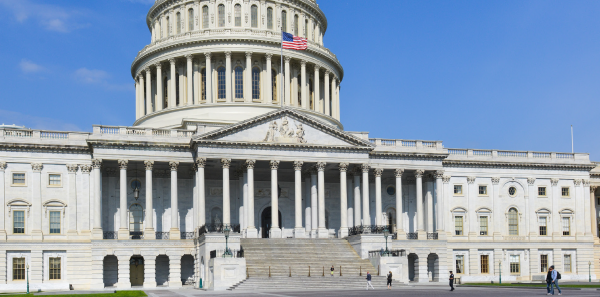
“Reconciliation” Is the Wrong Word
Passage of a reconciliation bill stands as an important exception to the U.S. Senate rules around bill passage, as reconciliation bills only require a simple majority for passage and are not subject to filibuster. There are special rules for reconciliation bills, so not everything can be done through the reconciliation process. First, reconciliation bills must contain only provisions that are tied to the passage of a budget bill, and each provision of the bill must have a direct effect on the federal budget. In addition to being directly tied to the budget, provisions may not add to the federal deficit beyond the bill’s budgetary period unless financial offsets are included. Any senator can raise a challenge if they believe a provision in the bill does not meet the requirements to be included in the reconciliation bill. Challenges are decided by the nonpartisan Senate parliamentarian, who recently ruled that the inclusion of a provision to raise the minimum wage to $15 per hour was not allowable.
Explore This Issue
ACEP Now: Vol 40 – No 03 – March 2021The reality is that “reconciliation” in Washington has nothing to do with members of Congress agreeing to put aside their differences and work collaboratively. Ironically, moving the current COVID-19 relief package as a “reconciliation bill” as the first major piece of legislation in the 117th Congress has only deepened the divide between the Democrats and Republicans. Regardless of the irony of the name, reconciliation bills taken up by the 117th Congress can, and likely will, contain major policy and budgetary provisions that will affect the practice of emergency medicine. The current Democratic trifecta in Washington, D.C. has uniquely set the stage for the use of reconciliation bills to make major changes in health care policy in the country.
The currently proposed $1.9 trillion COVID-19 package progressing through Congress is being moved under the reconciliation process. The bill contains many provisions that would directly and indirectly affect emergency medicine, including:
- Funding for vaccine distribution
- Expansion of subsidies under the Affordable Care Act for health insurance
- Expansion of health insurance for the unemployed through COBRA insurance subsidies
- Direct aid to state and local governments, which would reduce budgetary pressures on states that operate under balanced budget requirements and could help protect Medicaid reimbursement
Although the bill is being considered under reconciliation rules, it has not served to create any bipartisan compromise between Republicans and Democrats that was demonstrated with previous COVID-19 relief bills.
As important as this COVID-19 relief package could end up being for emergency medicine by increasing the number of insured Americans, it may pale in comparison to the next reconciliation package anticipated for later this year. The next reconciliation bill, which would need to be tied to the next budget bill, could potentially include provisions establishing some form of federal “public option” for health care insurance for people currently not eligible for Medicare. Given the fragile financial economics of emergency medicine practice, any major paradigm shifts in the payer mix of our patients created by legislation could have significant impacts on the specialty.
Pages: 1 2 3 | Single Page






No Responses to “What to Expect from the 117th Congress”